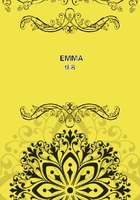
第136章
It will be nothing but pleasure, a life of pleasure.--And her salary!--
I really cannot venture to name her salary to you, Miss Woodhouse.
Even you, used as you are to great sums, would hardly believe that so much could be given to a young person like Jane."
"Ah! madam," cried Emma, "if other children are at all like what I remember to have been myself, I should think five times the amount of what I have ever yet heard named as a salary on such occasions, dearly earned."
"You are so noble in your ideas!"
"And when is Miss Fairfax to leave you?"
"Very soon, very soon, indeed; that's the worst of it.
Within a fortnight. Mrs. Smallridge is in a great hurry.
My poor mother does not know how to bear it. So then, I try to put it out of her thoughts, and say, Come ma'am, do not let us think about it any more."
"Her friends must all be sorry to lose her; and will not Colonel and Mrs. Campbell be sorry to find that she has engaged herself before their return?"
"Yes; Jane says she is sure they will; but yet, this is such a situation as she cannot feel herself justified in declining.
I was so astonished when she first told me what she had been saying to Mrs. Elton, and when Mrs. Elton at the same moment came congratulating me upon it! It was before tea--stay--no, it could not be before tea, because we were just going to cards--and yet it was before tea, because I remember thinking--Oh! no, now I recollect, now I have it; something happened before tea, but not that. Mr. Elton was called out of the room before tea, old John Abdy's son wanted to speak with him. Poor old John, I have a great regard for him; he was clerk to my poor father twenty-seven years; and now, poor old man, he is bed-ridden, and very poorly with the rheumatic gout in his joints--
I must go and see him to-day; and so will Jane, I am sure, if she gets out at all. And poor John's son came to talk to Mr. Elton about relief from the parish; he is very well to do himself, you know, being head man at the Crown, ostler, and every thing of that sort, but still he cannot keep his father without some help; and so, when Mr. Elton came back, he told us what John ostler had been telling him, and then it came out about the chaise having been sent to Randalls to take Mr. Frank Churchill to Richmond.
That was what happened before tea. It was after tea that Jane spoke to Mrs. Elton."
Miss Bates would hardly give Emma time to say how perfectly new this circumstance was to her; but as without supposing it possible that she could be ignorant of any of the particulars of Mr. Frank Churchill's going, she proceeded to give them all, it was of no consequence.
What Mr. Elton had learned from the ostler on the subject, being the accumulation of the ostler's own knowledge, and the knowledge of the servants at Randalls, was, that a messenger had come over from Richmond soon after the return of the party from Box Hill--which messenger, however, had been no more than was expected; and that Mr. Churchill had sent his nephew a few lines, containing, upon the whole, a tolerable account of Mrs. Churchill, and only wishing him not to delay coming back beyond the next morning early; but that Mr. Frank Churchill having resolved to go home directly, without waiting at all, and his horse seeming to have got a cold, Tom had been sent off immediately for the Crown chaise, and the ostler had stood out and seen it pass by, the boy going a good pace, and driving very steady.
There was nothing in all this either to astonish or interest, and it caught Emma's attention only as it united with the subject which already engaged her mind. The contrast between Mrs. Churchill's importance in the world, and Jane Fairfax's, struck her; one was every thing, the other nothing--and she sat musing on the difference of woman's destiny, and quite unconscious on what her eyes were fixed, till roused by Miss Bates's saying, "Aye, I see what you are thinking of, the pianoforte. What is to become of that?--Very true. Poor dear Jane was talking of it just now.--
`You must go,' said she. `You and I must part. You will have no business here.--Let it stay, however,' said she; `give it houseroom till Colonel Campbell comes back. I shall talk about it to him; he will settle for me; he will help me out of all my difficulties.'--
And to this day, I do believe, she knows not whether it was his present or his daughter's."
Now Emma was obliged to think of the pianoforte; and the remembrance of all her former fanciful and unfair conjectures was so little pleasing, that she soon allowed herself to believe her visit had been long enough; and, with a repetition of every thing that she could venture to say of the good wishes which she really felt, took leave.